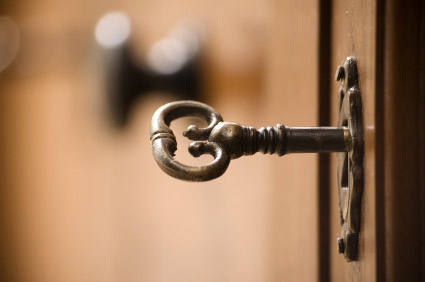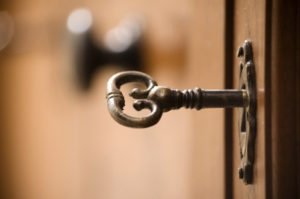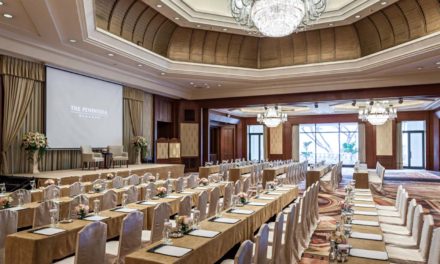Whether it’s your first time hiring an outside event planner to help you with an event or if you only need to occasionally hire someone, it’s important to make sure you hire the right event company or event planner for your program. This doesn’t have to seem like a daunting task, but you should make sure you spend time sourcing the best event planners and then screening them carefully. After all, even those who are seasoned pros at this have stories they can share.
Here’s How:
- What is your event objective?
Most people think that hiring an outside event planner or caterer begins by determining the event’s budget, but the truth is that it’s more important to begin by defining why you want to hold an event in the first place. Before you reach out to an external or even internal resource who will help you plan that event, you want to be in a position to share the important goals to your event planning: answer your own relevant questions about who, what, where, when, why and how. There will be plenty of time to make adjustments.
- Why are you hiring an event planner?
Once you’ve defined your objectives, a few clear ideas will begin to emerge about what theme and message you want to convey at your event. But most importantly, what activities and services do you need the external resource to handle on your behalf? Will they help with selecting the venue(s)? Will they build menus and make those recommendations? Are they helping with creating important communication items, such as invitations and other event materials? Do they need to source entertainment and speakers? Will they be needed on site at the event? Will they handle event registration?
- Okay, now it’s time to estimate a budget.
Based on your event objectives, it’s possible to create a general sense of how much it will cost for various elements of your program. This will vary based on the type of event you are hosting, and what it includes. Many people who organize an event for the first time often fall into the trap of wanting to plan a champagne event on a beer budget (no offense intended to beer-themed events – we love those, too). Even that’s possible — not easy, but possible. And that’s why many people turn to their event planner for help. - Source a qualified event planner.
Oftentimes people think that word of mouth is the best way to hire an event planner for that anniversary party, breakfast business meeting, weekend retreat or other type of event. While it certainly helps, this is probably not the most effective approach. If you’re trying to find the best event planner for your event, then it’s best to research someone who is experienced and holds a strong reputation within the community of event planners. Word of mouth provides an opportunity for easy sales for a planner wanting to find new clients, but peer reputation is very effective.
- Source event planners through professional affiliations.
Regardless of whether it’s a social event or a corporate meeting, generally speaking, the rules of hiring an event planner or caterer remain the same. You want to hire someone who has expertise in your type of event. Consider chapters of professional membership groups. Check with the national or local chapter of Meeting Professionals International, the International Special Events Society, the National Association of Catering Executives, the Association of Wedding Professionals, etc. It’s also relevant to find out who is publishing articles in their industry.
- Source event planners through local CVBs, chambers and hotels.
Perhaps this one is overlooked the most. If you want to know who has a reputation for delivering services or expertise in a particular market, check with the local convention and visitors bureau. Many event planners are active members. They also maintain relationships with local chambers of commerce. Another way to source experts is to reach out to the hotel convention sales department. While they may want to help you, they understand that many organizations want to consider an outside resource. They’ll share with you who they trust.
- Interview three qualified planners.
Wow, we’ve only gotten to the point of sourcing and we’re just on step 7. It gets easier. Most event planners will be eager to hear about your specific event, but provide them with brief details at first, and focus a bit more about their expertise. Ask the event planner or their firm to share information about their business, experience with events, and how they plan for contingencies. Because you are the one who will be hiring the planner, your job is to listen to what your hear. It’s like hiring an employee. But the truth is, a good event planner will also screen you.
- Provide details about your event.
Good planners will walk you through a discussion to learn about your event’s overall objectives, time line, budget, guests/attendees, and personal preferences. Good planners will ask you questions about your organization, learn about your objectives, and learn about your particular event or series of events fits within your situation. This should help your potential planner put the event or program into context, understand why you may have set the objectives and theme that you did. This should be the same whether it’s a corporate event or a social event.
- Meet your planners in person if possible.
It’s not always possible to meet someone in person, especially if your program is out of town. However, depending on the budget and importance of your event, this is a very important step. And it’s a step that should be invested prior to narrowing your selected planner. Keep in mind, the most highly experienced planner may not always be the best hire. There’s something about building a rapport with someone, looking at them eye to eye, and listening to their ideas. You’ll gain a sense for someone’s passion and professionalism this way, too.
- Check references on your event and catering planners.
It’s not good enough to go on your gut instinct, the advice of your friends, or even colleagues and coworkers. This is your event, and your name and your reputation will be associated with it. Of course, you will ask for names of clients who have worked with the planner before. And you’re likely to get favorable contacts. But do more digging. Ask the event planner to talk about where they’ve held events before, and check those sources. Read information about their business. Find your own references to check.
- Narrow event and meeting planners to one and listen to their ideas.
Based on your goals and ideas, a good event planner will present you with a plan that will help achieve your them — and probably make them better. If it’s a private evening and dinner for an intimate group of people, the planner should come to you with ideas that includes many of the details for your program. At this point, the event planner should present you with ideas that will make you feel like they’ve taken your budget and doubled its value for you. This should be apparent in the way they pitch their vision for your event.
- Event planners should present their total budget.
Those ideas will come at a price, and it’s important for you to ask them to disclose all of their costs and potential sources of how their fee will be covered. Event planner fees will vary from planner to planner or event company to event company. Ask them to disclose their terms and all fees up front. Do they charge by the hour? Will they receive any commissions from the venue directly or indirectly? Do they accept a percentage of a sale from the venue? Will you be paying them directly or the event venue and other services?
- Negotiate terms, and review the fine print.
Depending on the nature of your event, you will be asked to provide deposits, etc., to the event planner and the event venues/services they offer. This is a perfectly acceptable way of handling business, but the best advice at this point is to seek professional advice and never sign a contract that hasn’t been reviewed by your own legal counsel — especially when dealing with private individuals who may not have the same resources of a large firm.
- Work closely with your event or meeting planner and confirm details.
Most bad stories that happen related to event planning is usually a result of lack of follow through. Event planning requires the effective coordination of logistics, and deferring these to a third party person sometimes results in a level of confidence or trust that should never have been given. This isn’t to say that most event planners don’t deliver on their promised services. Instead, it means that you should make sure that the logistics have been confirmed — by checking with their suppliers and venues directly. Have they received their deposits?
- Be ready to fire – or rehire – an event planner.
If everything goes as planned, you’ll have a successful event and an excellent resource for the future. But if the planning process doesn’t run smoothly for the services agreed to in writing, then it’s important to review whether the project is a good fit with the planner. While it’s reasonable to be patient and work through logistics and any potential misunderstandings along the way, if you’re not receiving the services you want then you should be ready to have some serious discussions. If you must, be ready to fire a bad planner and have a backup option at all times.





